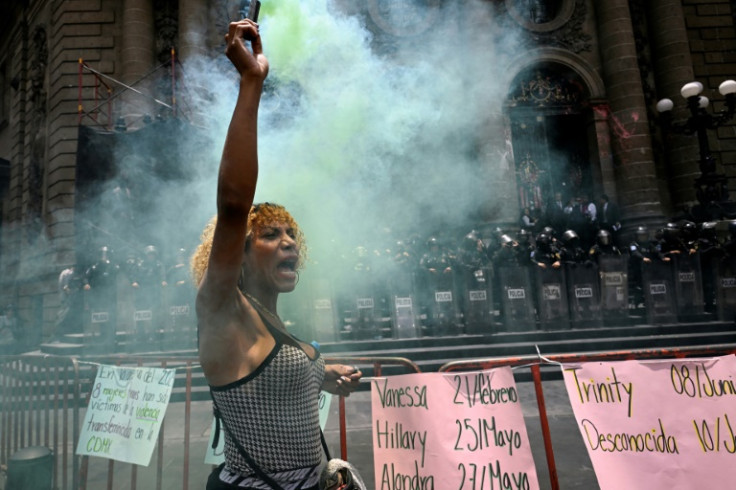
A new law passed in Mexico City (CDMX) by the ruling party, Morena, dictates that "transfemicides"— that is, the murder of transgender people— will be punishable in the city by up to 70 years in prison.
The new law, known as "Ley Paola Buenrostro" was introduced by the United Commissions on Gender Equality and Administration and Prosecution of Justice, and passed by the state legislature in a 45 to one vote, making CDMX the second city in Mexico to approve such a law.
"This ruling responds to the social urgency that trans women have brought to this venue," said Ana Francis Lopez, congresswoman for Morena and spokesperson for the commission that ruled on the law.
Similarly, congressmember Temistocles Villanueva, who in 2021 presented the initiative, said the approved law is "an act of historical justice in response to a demand from millions of trans people."
The law also clarifies that "transfemicide" is understood as the murder of transgender women or trans feminine people due to their gender identity: "from a gender perspective, transfemicide is understood as an extreme manifestation of gender violence and the discrimination faced by trans people."
The law also takes its name from Paola Buenrostro, a late trans activist and sex worker from Mexico that was murdered in 2016 by Arturo Felipe Delgadillo Olvera, who picked her up for her services and later confessed he killed her after listening to her voice and noticing she was a transgender woman.
Her death, which was taken to court by her friend and co-worker Kenya Cuevas, would eventually become the first transfemicide recognized by the state.
The law comes as a wave of transgender murders occurred not only in the state, but across the country. This year alone, at least 10 murders have been registered in the capital city, which has increased activism and pressures to pass the law, Forbes Mexico reports.
Likewise, a new report by Letra S, Sida Cultura y Vida, shows that 65% of the 66 victims of hate crime against LGBT people in Mexico last year were transgender women.
As the Paola Buenrostro law was approved, transgender and LGBT rights activists gathered outside the state legislature, celebrating the achievement and applauding the decision.
"Through this initiative we are seeking criminal recognition of the femicides of trans women in the search for restorative justice and reparation for harm to the victims," Natalia Lane, an activist, said.
The newly passed law stands in contrast to the U.S, where hate crimes law are broader. For instance, The Matthew Shepard and James Byrd Jr. Hate Crimes Prevention Act, enacted in 2009, extended federal hate crime law to include crimes motivated by a victim's actual or perceived gender, sexual orientation, gender identity, or disability. This law allows federal authorities to investigate and prosecute hate crimes that local authorities are unable or unwilling to pursue.
Depending on the state, hate crimes under that Act are punishable with up to 10 years in prison, unless the crime involves kidnapping or a bodily injury, in which the perpetrator can serve life in prison or receive the death penalty.
© 2024 Latin Times. All rights reserved. Do not reproduce without permission.







